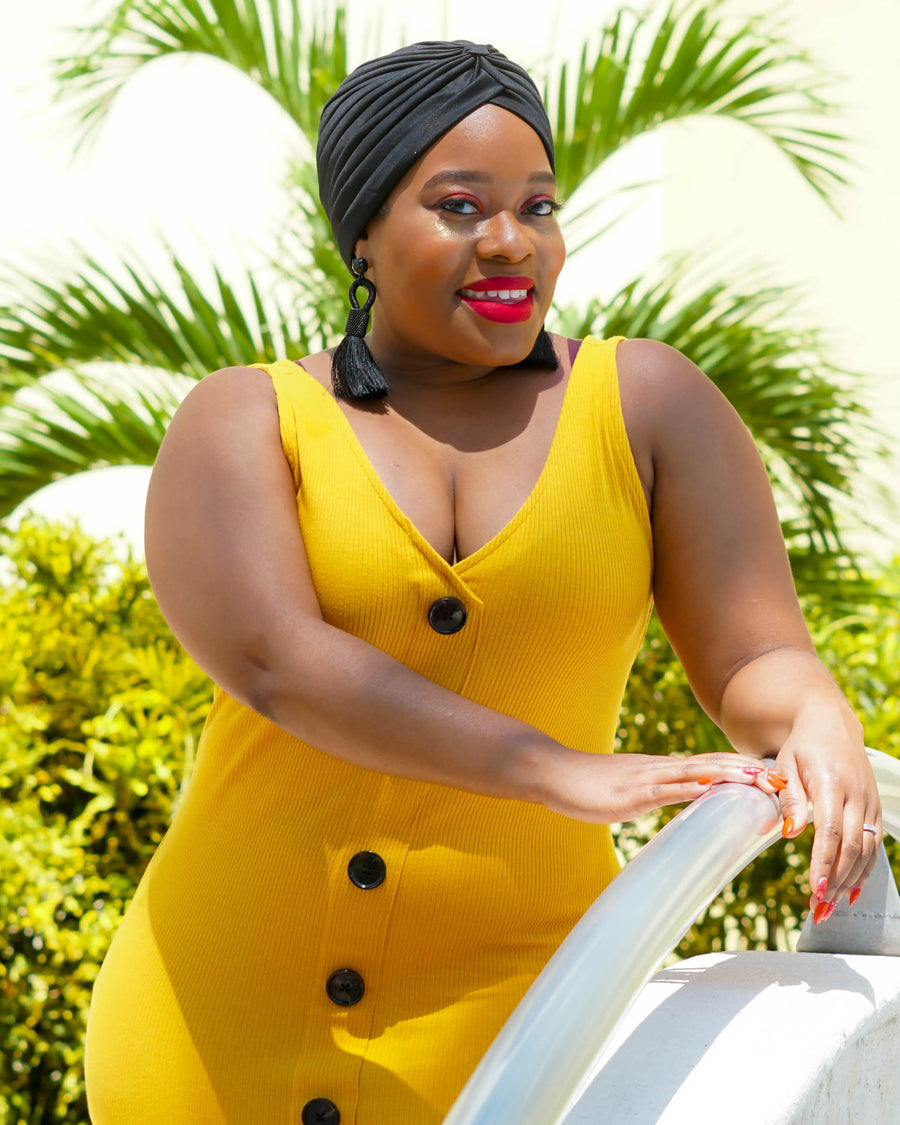April Christina on Becoming a Voice for Endometriosis

You were diagnosed with endometriosis 8 years ago. What was life like leading up to your diagnosis?
It was filled with many consistent doctor appointments not addressing the issue at hand—that I didn't know existed. I suffered from really bad leg pain to the point that physicians thought I had blood clots. It took one person to listen to everything I was saying to understand that it could have been something else. I spent a lot of days home, missing events, and normal things that I would like to do because the pain was so unbearable. It was hard to be able to navigate life past my bed.
You can follow April Christina on Instagram at @imaprilchristina or visit her blog.
How did your diagnosis change your perspective on women’s health and inspire you to found endoNme.com (now imaprilchristina.com)?
I wanted to be a voice that allowed others to not feel alone. There weren't many people discussing my condition when I initially started, and that was alarming for me. Statistics show that 1 in 10 women have endometriosis. I thought to myself that if I am searching for others like me to share their journey, I certainly cannot be the only one looking for the same thing. Me starting my platform was also a way for me to not internalize my feelings emotionally.
What are some experiences that have shaped your approach as a health educator?
My experience is two fold for me. I have my Bachelor of Science degree. I have always been involved in health to some capacity. Once I was diagnosed with endometriosis, my love of science increased—but in a different realm. I wanted to really understand my body, what it was doing, and how I can contribute to not only the conversation, but to the community that I was now in. Lastly, because I was misdiagnosed for years, I wanted to search various aspects of endo, so that I was knowledgeable for anyone that asked me.
What stigma(s) in women’s health or endometriosis do you wish to lift the veil on?
Everyone’s story or symptoms are not the same. I feel like this stigma happens quite often with endometriosis—that is how I went undiagnosed for so many years. Women being unable to express themselves openly and physicians/practitioners understanding that there may be something deeper than the surface. It shows that there is no “one path” to women’s health.
You have become an advocate for not only endo awareness, but also women’s health and a voice for WOC. Why is it especially important to create conversations around women’s health for minorities?
To be honest, when I started my advocacy and I was in search of answers, I did not see many women sharing their story that looked like me. As a woman of color, it is rare to find family members discussing what they dealt with. They suffered in silence. I did not want that for the generation after me. I wanted them to be able to know that if I was able to vocalize about my body and health, that they could also. I wanted to break down the barriers of not being ashamed. We did not pick this condition, but we are granted our intellect and resources. To use our voices in a light so other women of color will feel at ease sharing their experiences from someone looking for answers as I did in the past.
What is something you wish to share with women dealing with endometriosis
There is light at the end of the tunnel. You are not alone in the journey. Find support groups in person or on social media to gain knowledge, resources, and love from another endo warrior. Lastly, do not be afraid to share—it will help someone else!
You’re also a beauty blogger. What is your philosophy on beauty? How do you find balance between beauty, self-acceptance, and women’s health?
I had to learn to love myself on the inside before I was able to learn beauty on the outside. Sometimes when I am in pain I apply makeup. I do that to remind myself of the beauty that I possess, although my body may not feel that way. I am mindful to never use it as a substitute to mask what I am dealing with. Instead, I use it as a tool to express further how I will feel later. I believe that that is the key of balance. You have good days as well as bad days. Accept them as they come and allow yourself grace to not always feel okay.
Shop Products From This Article
Backed by science, trusted by mothers
We’re glad you’re here—join thousands of happy customers on the journey to parenthood and beyond.
Shop Now

















